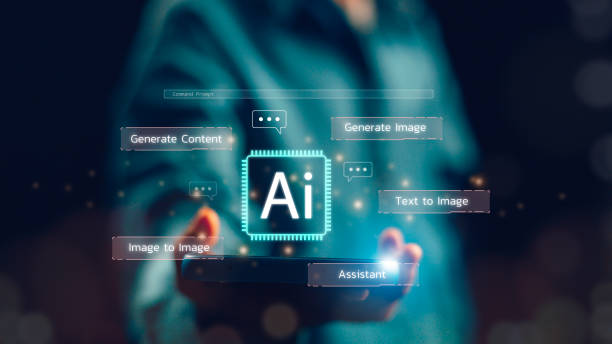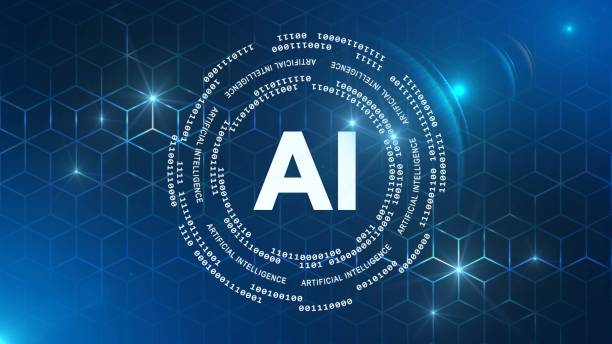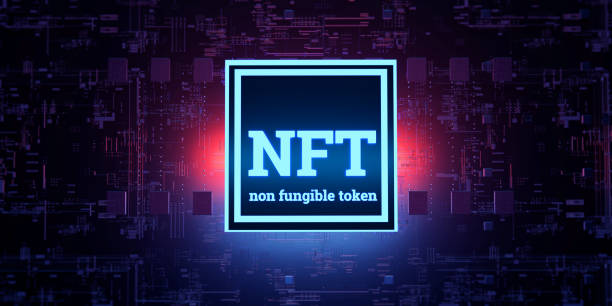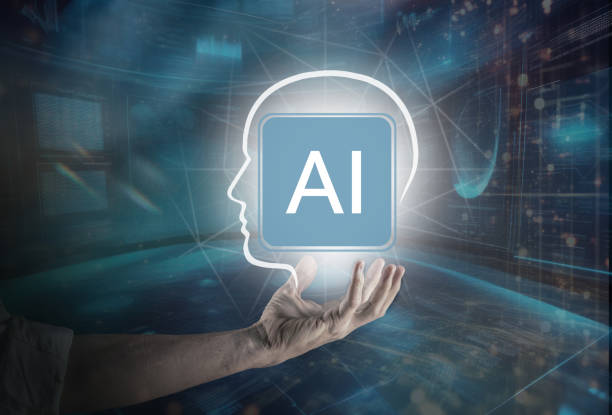What is an AI Assistant and What are its Applications?
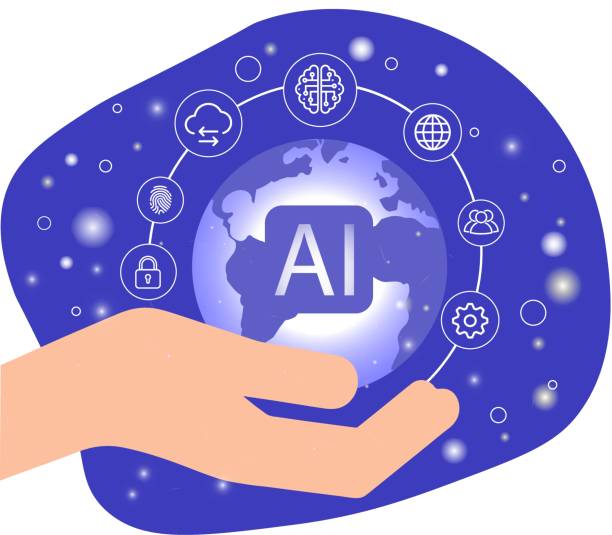
An Artificial Intelligence Assistant (AI Assistant) is a software or system that performs various tasks on behalf of the user, using artificial intelligence and natural language processing (NLP).
These tasks can include answering questions, creating content, managing time, scheduling, and even performing more complex tasks such as data analysis.
#AI_Assistants mimic human cognitive abilities, aiming to create natural and efficient interactions with users.
In other words, an AI assistant is a virtual colleague that can help you with your daily and professional tasks.
The applications of #AI_Assistants are very extensive and include various fields such as:
- Customer Services Providing quick and accurate answers to customer questions.
- Healthcare Assisting in diagnosing diseases and providing medical consultations.
- Education Offering personalized educational content and answering questions from students.
- Business Management Helping with planning, scheduling, and data analysis.
- Entertainment Providing recommendations for movies, music, and books, as well as creating stories and entertaining content.
AI assistants can exist in various forms, including chatbots on websites, voice assistants like Siri and Google Assistant, and specialized software used in specific industries.
Choosing the right AI assistant depends on your specific needs and goals.
Are you frustrated with the low conversion rate of your online store?
RasaWeb is your definitive solution with professional e-commerce website design!
✅ Increase your sales and revenue
✅ Unparalleled user experience for your customers
⚡ Get a free consultation now!
Types of AI Assistants and Their Key Features

AI assistants come in various types, each with its unique features and capabilities.
AI assistants can be categorized based on various criteria, including:
- Interaction Type Voice, text, and visual assistants.
- Scope of Operation General and specialized assistants.
- Deployment Method Cloud-based and on-premise assistants.
Some common types of AI assistants include:
- Voice Assistants These assistants respond to users’ voice commands using speech recognition and natural language processing technology.
Siri, Google Assistant, and Alexa are among the well-known examples in this category. - Chatbots These bots are used on websites, messengers, and other online platforms to provide customer services, answer frequently asked questions, and guide users.
- Virtual Assistants These assistants are installed as software on various devices such as smartphones, tablets, and computers and perform various tasks on behalf of the user.
- Enterprise Intelligent Assistants These assistants are designed to help employees with daily tasks, project management, and improving productivity in the workplace.
Key features of AI assistants include:
- Natural Language Processing (NLP) The ability to understand and interpret human language.
- Machine Learning The ability to learn from data and improve performance over time.
- Speech Recognition The ability to recognize and convert speech to text.
- Text Generation The ability to generate creative texts tailored to the user’s needs.
- Data Analysis The ability to analyze data and provide analytical reports.
When choosing an AI assistant, you should consider your specific needs and goals and carefully review its various features.
A good AI assistant should be able to help you perform tasks effectively and efficiently and provide a positive user experience.
Introducing the Most Popular AI Assistants in 2024
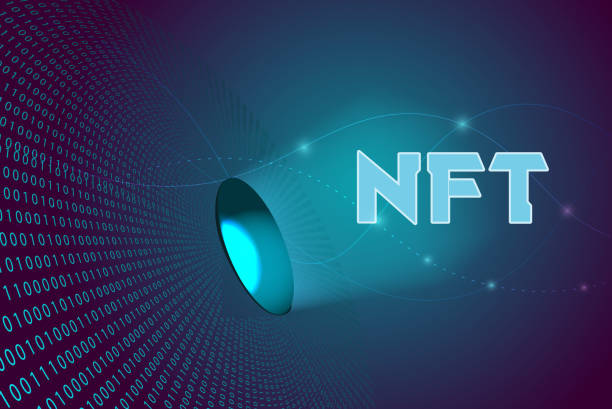
In 2024, several AI assistants have gained significant popularity, each with its unique features and benefits.
These assistants are used in various fields including customer services, healthcare, education, and business management.
Here are some of the most popular AI assistants in 2024:
- ChatGPT is a large language model developed by OpenAI.
This model can generate creative and textual content, answer questions, and participate in conversations.
ChatGPT is used in various fields including customer services, content generation, and education. - Google Assistant is a voice assistant developed by Google.
This assistant can respond to users’ voice commands, search for information, play music, and control smart home devices. - Siri is a voice assistant developed by Apple.
Siri operates similarly to Google Assistant and can be used on Apple devices such as iPhone, iPad, and Mac. - Bard is another large language model developed by Google.
This model is also similar to ChatGPT and can generate creative and textual content, answer questions, and participate in conversations.
Choosing the right AI assistant depends on your specific needs and goals.
Before choosing an assistant, you should carefully review its various features and capabilities and ensure it is compatible with your needs.
These AI assistants can help you with your daily and professional tasks and increase your productivity.
Using an AI assistant can improve your user experience and save you time and effort.
| Assistant Name | Developer | Type |
|---|---|---|
| ChatGPT | OpenAI | Large Language Model |
| Google Assistant | Voice Assistant | |
| Siri | Apple | Voice Assistant |
| Bard | Large Language Model |
How to Choose the Right AI Assistant for Yourself?
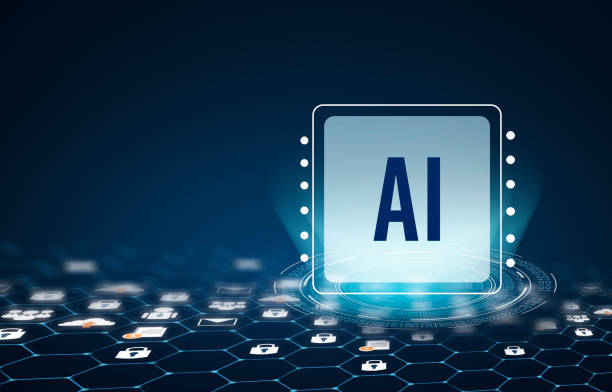
Choosing the right AI assistant can significantly impact your productivity and efficiency.
To select a suitable assistant, you should consider your specific needs and goals and carefully review its various features.
Here are some key tips for choosing the right AI assistant:
- Determine Needs and Goals First and foremost, you need to define what you expect from an AI assistant and what tasks you want to assign to it.
Are you looking for an assistant to answer questions, generate content, manage time, or perform more complex tasks? - Review Features and Capabilities After determining your needs, you should review the various features and capabilities of available AI assistants.
Pay attention to natural language processing, machine learning, speech recognition, text generation, and data analysis. - Compatibility with Devices and Platforms Ensure that the chosen assistant is compatible with the devices and platforms you use.
Can you use it on your smartphone, tablet, computer, or other devices? - Check User Reviews and Feedback Before purchasing or subscribing to an AI assistant, check other users’ reviews and feedback.
These reviews can help you better understand the assistant’s strengths and weaknesses. - Free Trial (if available) If possible, try the free trial version of the assistant before purchasing.
This allows you to familiarize yourself with its features and capabilities and ensure it meets your needs.
Additionally, you should also consider the price of the AI assistant.
Some assistants are free, while others require a subscription fee.
Ultimately, choosing the right AI assistant is a personal decision that should be based on your needs, goals, and budget.
By carefully reviewing the various features and capabilities of assistants, you can choose the best option for yourself and benefit from its advantages.
How much does losing business leads due to an unprofessional website cost you? Solve this problem forever with professional corporate website design by RasaWeb!
✅ Increase credibility and trust of potential customers
✅ Easier attraction of new business leads
⚡ Get a free consultation now!
How to Effectively Use AI Assistants to Increase Productivity
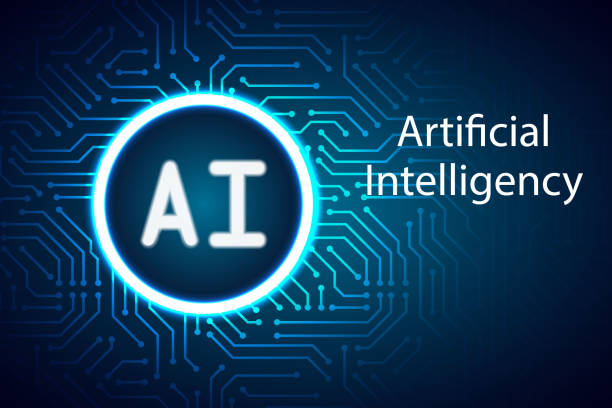
AI assistants can be powerful tools for increasing productivity in various fields.
By using these assistants correctly, you can save time and effort and achieve better results.
Here are some strategies for effective use of AI assistants:
- Assign Appropriate Tasks To start, choose tasks that the AI assistant can perform effectively.
These tasks can include answering simple questions, drafting emails, scheduling meetings, and reminding about tasks. - Provide Clear and Precise Instructions The clearer and more precise your instructions are, the better the AI assistant can understand your request and achieve the desired results.
Use appropriate keywords and avoid ambiguity. - Training and Customization Some AI assistants offer training and customization options.
By training the assistant and adjusting its settings, you can improve its performance and adapt it to your specific needs. - Utilize Advanced Features Many AI assistants offer advanced features such as data analysis, content generation, and language translation.
By using these features, you can significantly increase your productivity. - Combine with Other Tools AI assistants can be combined with other tools and software you use.
For example, you can use an AI assistant to manage emails, schedule meetings, and remind about tasks in Microsoft Teams or Slack.
By using AI assistants, you can automate repetitive and time-consuming tasks and allocate more time to more important and creative tasks.
Using an AI assistant can help you better manage your time, increase focus, and improve work quality.
Additionally, by using an AI assistant, you can have faster and easier access to the information you need and make better decisions.
Challenges and Limitations of Using AI Assistants

While AI assistants offer many advantages, they also come with challenges and limitations.
Understanding these challenges and limitations can help you use these tools more consciously and effectively.
Here are some of the most important challenges and limitations of using AI assistants:
- Accuracy and Correctness AI assistants may, in some cases, provide inaccurate or incorrect information.
This is especially true for complex questions and topics for which there is insufficient information. - Privacy and Security The use of AI assistants can raise concerns about data privacy and security.
Your personal information may be collected and used by the assistant’s developers. - Over-reliance Excessive use of AI assistants can lead to over-reliance and a reduction in individual abilities.
You may gradually lose your ability to perform tasks you previously did with ease. - Lack of Understanding Emotions and Sentiments AI assistants cannot understand human emotions and sentiments and respond appropriately to them.
This can be problematic in human interactions and customer services. - Need for Internet Connection Many AI assistants require an internet connection to function properly.
This can be problematic in areas where internet access is limited.
Furthermore, AI assistants may sometimes have unconscious biases.
These biases can stem from the data used to train the assistant.
For example, an AI assistant may show gender or racial discrimination in providing answers or suggestions.
To overcome these challenges and limitations, it is essential for AI assistant developers to continuously improve algorithms, increase the accuracy and correctness of information, and protect data privacy and security.
Also, users should use these tools consciously and responsibly and avoid over-reliance on them.
The Future of AI Assistants and Their Impact on Our Lives
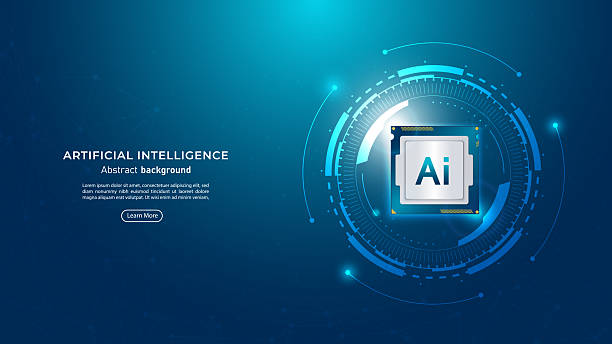
AI assistants are rapidly advancing and are expected to play a more significant role in our lives in the future.
With technological advancements, AI assistants will be able to perform more complex tasks, have more natural interactions with humans, and respond more effectively to our needs.
Here are some key trends in the future of AI assistants:
- Increased Intelligence and Learning Capabilities AI assistants, using more advanced machine learning algorithms, will be able to understand more information and learn from their experiences.
This will lead to increased accuracy, correctness, and their capabilities in performing various tasks. - More Natural and Human-like Interactions AI assistants, using more advanced natural language processing technologies, will be able to have more natural and human-like interactions with humans.
They will be able to understand human emotions and sentiments and respond appropriately to them. - Greater Personalization AI assistants will be able to provide more personalized experiences by collecting more information about users.
They will be able to understand each user’s needs and preferences and provide tailored suggestions and responses. - Integration with More Devices and Platforms AI assistants will be integrated with more devices and platforms.
This will allow users to use their AI assistant anytime, anywhere. - Increased Application in Various Industries AI assistants will find increased application in various industries including customer services, healthcare, education, business management, and entertainment.
With the advancement of AI assistants, our lives will become easier, more efficient, and more enjoyable.
AI assistants will be able to help us with daily tasks, quickly find the information we need, communicate with others, and enjoy our favorite entertainment.
However, it is also important to pay attention to the challenges and limitations of using AI assistants and use these tools consciously and responsibly.
Optimal use of #AI_Assistants will play an effective role in the progress of societies.
| Trend | Description |
|---|---|
| Increased Intelligence | Improvement of machine learning algorithms |
| More Natural Interactions | Use of more advanced natural language processing technologies |
| Greater Personalization | Providing more personalized experiences |
| Integration with Devices | Integration with more devices and platforms |
| Increased Application | Increased application in various industries |
Important Tips for Protecting Privacy When Using AI Assistants

Protecting privacy when using AI assistants is of paramount importance.
AI assistants have access to your personal information and may collect, store, and use this information.
To protect your privacy, you must take necessary precautions.
Here are some important tips for protecting privacy when using AI assistants:
- Review Privacy Policy Before using an AI assistant, carefully review its privacy policy.
Make sure you are aware of how your information is collected, stored, and used. - Enable Privacy Settings Many AI assistants offer privacy settings that allow you to have more control over your information.
Enable these settings and adjust them according to your preferences. - Avoid Providing Sensitive Information Avoid providing sensitive information such as credit card numbers, passwords, and medical information to your AI assistant.
- Review and Delete History Regularly review your activity history in the AI assistant and delete information you do not want to be stored.
- Inform Others If you are using an AI assistant in an environment where others are present, inform them about it.
Let them know that the assistant may record their voices.
Additionally, you should be aware that AI assistant developers may share your information with other companies.
For example, your information may be shared with advertising companies to display more targeted advertisements to you.
To prevent this, you can use ad blockers or use AI assistants that have a stronger privacy policy.
Protecting personal information is a necessity in today’s world, and by following these simple tips, you can protect your privacy from potential risks.
Remember that your information is valuable and you must protect it.
An AI assistant is a powerful tool, but it should not come at the cost of losing your privacy.
Does your current corporate website present a worthy image of your brand and attract new customers?
If not, turn this challenge into an opportunity with RasaWeb’s professional corporate website design services.
✅ Significantly improves your brand credibility and image.
✅ Smooths the path for attracting new leads and customers.
⚡ For a free and expert consultation, contact RasaWeb now!
Comparing AI Assistants with Human Assistants
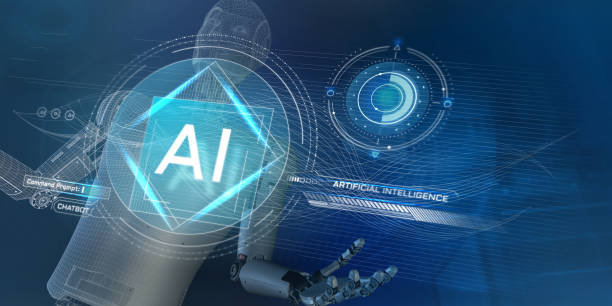
AI assistants and human assistants can both help us with various tasks, but there are fundamental differences between the two.
Understanding these differences can help us choose the most suitable option for our specific needs.
Here’s a comparison of AI assistants with human assistants in various aspects:
- Cost AI assistants are generally less expensive than human assistants.
They do not require salaries, insurance, and other benefits. - Availability AI assistants are available 24 hours a day, 7 days a week.
They never get tired and do not need rest. - Scalability AI assistants are easily scalable.
You can quickly and easily increase or decrease the number of your AI assistants. - Accuracy and Speed AI assistants typically perform repetitive and computational tasks more accurately and faster than human assistants.
- Creativity and Innovation Human assistants generally perform better than AI assistants in tasks that require creativity, innovation, and critical thinking.
- Understanding Emotions Human assistants are capable of understanding human emotions and sentiments and can respond appropriately to them.
AI assistants still have limitations in this area. - Communication Skills Human assistants generally have better communication skills than AI assistants.
They are capable of effective communication with others, negotiation, and complex problem-solving.
In summary, AI assistants excel in repetitive, computational, and time-consuming tasks, while human assistants excel in tasks requiring creativity, innovation, understanding emotions, and communication skills.
The best choice for you depends on your specific needs and goals.
If you are looking for a low-cost, always-available, and accurate assistant, an AI assistant might be a suitable option for you.
However, if you are looking for a creative, innovative assistant with strong communication skills, a human assistant might be a better option.
Today, a combination of both types of assistants can yield the best results.
For example, an AI assistant can be used for repetitive and time-consuming tasks, and a human assistant for creative and complex tasks.
Using #AI_Assistants as a complement to human workforce can help increase productivity and improve work quality.
How Businesses Can Benefit from AI Assistants?
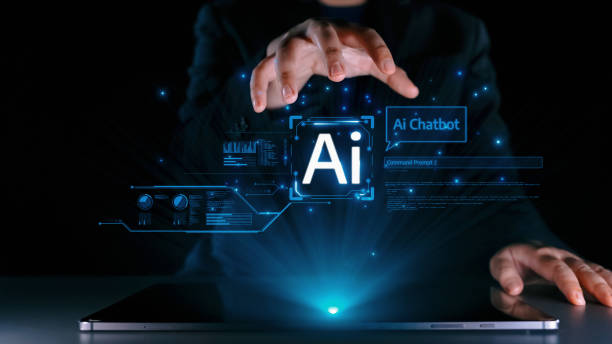
AI assistants can offer many benefits for businesses.
Including:
- Improved Customer Services AI assistants can answer customer questions, solve their problems, and provide necessary guidance 24 hours a day, 7 days a week.
This can lead to increased customer satisfaction and an improved brand image. - Increased Productivity AI assistants can automate repetitive and time-consuming tasks, freeing up more time for employees to focus on more important and strategic tasks.
This can lead to increased productivity and reduced costs. - Reduced Costs AI assistants can reduce labor costs.
They do not require salaries, insurance, and other benefits. - Improved Decision-Making AI assistants can analyze data and provide analytical reports.
This information can help managers make better and more informed decisions. - Creation of New Opportunities AI assistants can create new opportunities for businesses.
For example, they can be used to offer new services, create innovative products, and enter new markets.
To benefit from AI assistants, businesses must have a clear strategy.
This strategy should include setting goals, choosing the most suitable AI assistant, training employees, and measuring results.
Initially, businesses should select tasks that the AI assistant can perform effectively.
These tasks can include answering frequently asked questions, gathering information, scheduling meetings, and reminding about tasks.
After selecting tasks, businesses should choose the most suitable AI assistant.
This choice should be based on the business’s needs, goals, and budget.
Finally, businesses must train their employees to effectively use the AI assistant.
This training should include how to use the assistant’s various features, how to provide clear and precise instructions, and how to troubleshoot potential problems.
By implementing a suitable strategy, businesses can benefit from #AI_Assistants and improve their performance.
Using AI assistants can help businesses compete with other companies and strengthen their position in the market.
Frequently Asked Questions
| Number | Question | Answer |
|---|---|---|
| 1 | What is an AI assistant? | An AI assistant is a software program that uses artificial intelligence to help users perform various tasks, provide information, or automate processes. |
| 2 | What are examples of AI assistants? | Famous examples include Siri, Google Assistant, Alexa, and Cortana. |
| 3 | How does an AI assistant work? | AI assistants typically use Natural Language Processing (NLP) to understand user’s voice or text commands and Machine Learning to improve their performance. |
| 4 | What capabilities does it have? | Capabilities include answering questions, setting reminders, playing music, sending messages, controlling smart devices, and providing weather information. |
| 5 | How is data security in AI assistants? | Data security is a major concern. Companies strive to protect user data using encryption and privacy policies, but users should always be aware of potential risks. |
| 6 | Can AI assistants understand emotions? | Currently, AI assistants cannot understand real emotions, but they can detect tone and words related to emotions and provide appropriate responses. |
| 7 | What are the applications of AI assistants in the workplace? | In the workplace, they can be used for scheduling meetings, managing emails, searching for information, and even helping to draft documents. |
| 8 | What will be the future of AI assistants? | In the future, they are expected to be smarter, more personalized, and have more capabilities, so they can actively anticipate user needs and even assist in complex decision-making. |
| 9 | What is the difference between an AI assistant and a chatbot? | An AI assistant typically has a wider range of capabilities and interactions (often voice-based), while chatbots are usually focused on specific tasks within a text-based platform. |
| 10 | How can one best use an AI assistant? | For optimal use, one should familiarize themselves with its voice commands and capabilities, synchronize it with other devices, and allow it to learn your usage patterns through interactions. |
and other advertising agency services from RasaWeb in advertising
Smart Conversion Rate Optimization: A creative platform for improving sales increase with intelligent data analysis.
Smart Conversion Rate Optimization: A novel service for increasing website visits through optimizing key pages.
Smart Marketing Automation: A dedicated service for digital branding growth based on SEO-optimized content strategy.
Smart Digital Branding: A professional solution for customer behavior analysis with a focus on SEO-driven content strategy.
Smart Brand Identity: A new service for increasing customer behavior analysis through the use of real data.
and over hundreds of other services in the field of internet advertising, advertising consultation, and organizational solutions
Internet Advertising | Advertising Strategy | Advertorials
Resources
Complete Guide to Using ChatGPT; Your New AI Assistant
What is an AI Assistant?
AI Assistants: A Guide to Selection and Application
Introducing the Best AI Tools and Their Applications
? Are you ready to grow your business in the digital world? With RasaWeb Afarin Digital Marketing Agency’s comprehensive services, including e-commerce website design and SEO optimization, have a powerful presence in the online market.
📍 Tehran, Mirdamad Street, next to Central Bank, Southern Kazeroun Alley, Ramin Alley, No. 6

